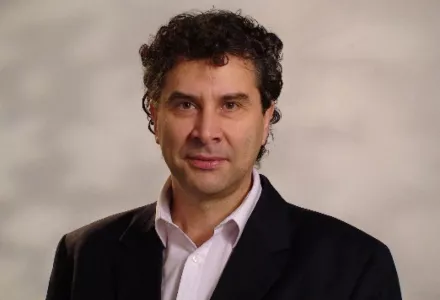Dr. Corneliu Bjola is the Associate Professor of Diplomatic Studies at Oxford University and among the leading, international thinkers on the impact of Artificial Intelligence (AI) on the practice of diplomacy and the bureaucratic systems that underpin functional international relations. In a seminar hosted by the Future of Diplomacy Project, Dr. Bjola spoke about the history of AI and its grounded applications in foreign policy.
Dr. Bjola first emphasized the descriptive applications of using AI in core foreign ministry activities – including enhancing consular services through AI technology and developing a better understanding of the global affairs landscape. Dr. Bjola also emphasized AI’s predictive capabilities to anticipate disinformation campaigns and to identify geopolitical risks. In addition to explaining AI’s applications in foreign affairs, Dr. Bjola drew on examples from foreign ministries to highlight their varying approaches and degrees of sophistication in designing AI (e.g., bringing architects to design AI applications) and managing the pace of bureaucratic change due to AI’s disruptive nature. While Dr. Bjola discussed the forward-looking opportunities of AI’s applications in foreign service and bureaucracies, he also spoke to the challenges that AI can present – including data privacy and security concerns, the increasing complexity of data architecture, and the technological power asymmetries that exists between countries with advanced AI capabilities and those that are still developing their AI capabilities.
---
Corneliu Bjola is Associate Professor in Diplomatic Studies at the University of Oxford and Head of the Oxford Digital Diplomacy Research Group. He also serves as a Faculty Fellow at the Center on Public Diplomacy at the University of Southern California and as a Professorial Lecturer at the Diplomatic Academy of Vienna. He has published extensively on issues related to the impact of digital technology on the conduct of diplomacy with a recent focus on public diplomacy, international negotiations and methods for countering digital propaganda. His current research project "Diplomacy in the Age of Artificial Intelligence: Evolution or Revolution?” examines the potentially transformative impact of AI in consular affairs, crisis communication, public diplomacy, and international negotiations.



